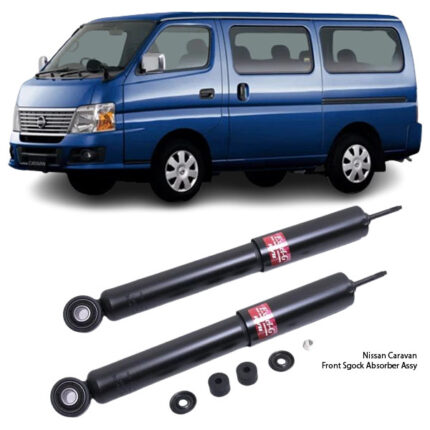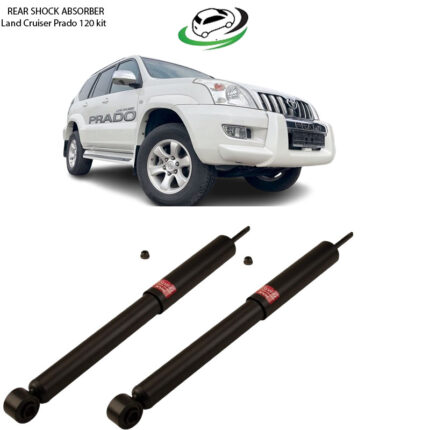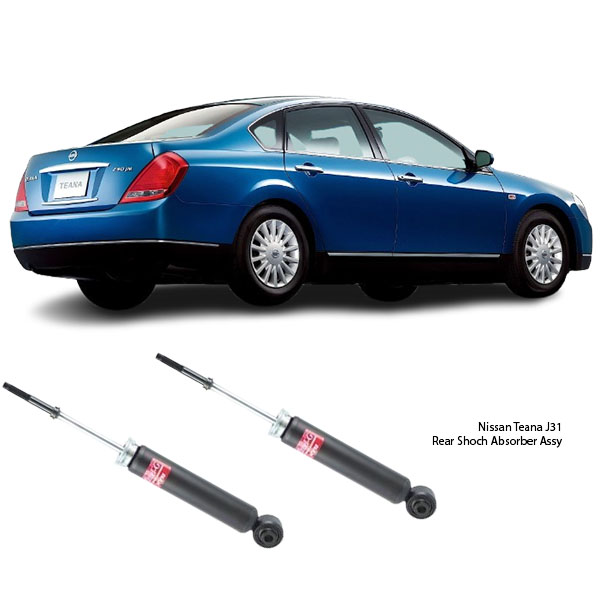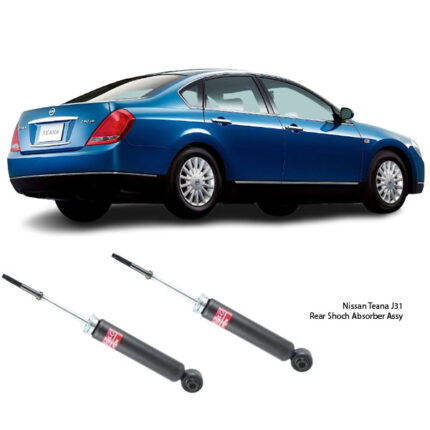Get Nissan Teana J31 Rear Shock Absorber Assy 344444 in Kenya
The Rear Shock Absorber Assembly is an essential part of a vehicle’s suspension system, ensuring a smooth, stable, and safe ride. It absorbs bumps, vibrations, and shocks from the road, providing better control, traction, and comfort. Whether you’re driving on highways, city roads, or rugged terrain, a high-quality rear shock absorber assembly plays a crucial role in maintaining ride quality and safety.
What is a Rear Shock Absorber Assembly?
A Rear Shock Absorber Assembly (also called a damper assembly) is a complete suspension unit that includes all necessary components to ensure optimal vehicle stability and ride comfort. It is located at the rear wheels of a car and works by absorbing impact energy, preventing the vehicle from bouncing excessively after hitting bumps, potholes, or rough roads.
Components of a Rear Shock Absorber Assembly
Shock Absorber (Damper): The main component that absorbs road shocks
Coil Spring (If part of a Strut Assembly): Helps absorb impact and supports vehicle weight
Mounting Bushings: Rubber or polyurethane parts that cushion vibrations
Piston & Hydraulic Fluid: Controls motion through resistance
Dust Cover/Boot: Protects the shock from dirt, debris, and moisture
The rear shock absorber assembly plays a key role in maintaining vehicle stability and preventing excessive bouncing, especially when carrying passengers or cargo in the back.
Function of a Rear Shock Absorber
The rear shock absorber assembly serves several important functions:
Absorbing Road Impacts: Minimizes the effect of bumps, potholes, and rough surfaces
Enhancing Ride Comfort: Ensures a smooth and controlled driving experience
Improving Handling & Stability: Prevents excessive body roll and swaying
Reducing Tire Wear: Keeps tires in proper contact with the road for even wear
Enhancing Braking Performance: Helps maintain rear-wheel traction during braking
Supporting Load Carrying: Improves stability when carrying heavy loads or passengers
Without functional rear shock absorbers, a vehicle would be unstable, uncomfortable, and unsafe to drive.
Types of Rear Shock Absorbers
There are different types of rear shock absorbers, each designed for specific driving needs and vehicle types.
Twin-Tube Shock Absorbers
Most common type
Uses two tubes (inner and outer) for oil displacement
Cost-effective and durable
Suitable for daily driving
Monotube Shock Absorbers
Higher performance than twin-tube
Single tube with gas and oil separation
Offers better heat dissipation and damping control
Used in sports and performance vehicles
Gas-Charged Shock Absorbers
Reduces foaming in hydraulic fluid for consistent performance
Provides firmer handling and stability
Ideal for high-speed driving and rough roads
Coilover Shock Absorbers
Combines shock absorber and coil spring in one unit
Allows height and stiffness adjustments
Used in racing and performance vehicles
Adjustable Shock Absorbers
Can adjust damping stiffness
Used in performance and off-road vehicles
Ideal for drivers who want custom ride settings
Choosing the right shock absorber depends on your driving style and road conditions.
Signs Your Rear Shock Absorber Assembly Needs Replacement
A failing rear shock absorber can negatively affect handling, comfort, and safety. Watch out for these warning signs:
Excessive Bouncing: Car continues bouncing after hitting bumps
Poor Rear Stability: Rear end feels unstable or loose, especially at high speeds
Longer Braking Distance: Reduced traction increases stopping distance
Uneven Tire Wear: Cupped or bald spots on rear tires
Leaking Hydraulic Fluid: Visible oil leakage from the shock absorber
Noisy Suspension: Clunking or knocking sounds over bumps
Vehicle Sags at the Rear: Rear end appears lower than the front
If you notice any of these symptoms, it’s time to replace your rear shock absorber assembly.
How Often Should You Replace Your Rear Shock Absorbers?
Recommended Replacement Interval:
80,000 – 120,000 km (50,000 – 75,000 miles) under normal driving conditions
40,000 – 80,000 km (25,000 – 50,000 miles) for rough terrain or heavy-duty use
If you frequently drive on bad roads, tow heavy loads, or participate in high-speed driving, you may need earlier replacements.
How to Replace a Rear Shock Absorber Assembly?
Replacing a rear shock absorber assembly requires mechanical skills and tools.
Tools Needed:
Jack & jack stands
Socket & wrench set
Torque wrench
New rear shock absorber assembly
Step-by-Step Process:
Lift the Car & Remove the Rear Wheel – Use a jack and secure the car with stands
Unbolt the Old Shock Absorber – Disconnect from suspension components
Remove the Old Shock – Carefully slide it out
Install the New Shock Absorber Assembly – Ensure correct alignment
Reassemble Suspension Components & Tighten Bolts – Use a torque wrench
Reattach the Wheel & Lower the Car
Test Drive & Check for Issues – Ensure smooth performance
Caution: If your car has air suspension, additional steps may be required.
Follow us on Facebook for more parts.




